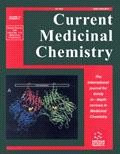Stiborová M, Eckschlager T, Poljaková J, Hraběta J, Adam V, Kizek R, Frei E. Curr Med Chem. 2012 19(25):4218–38. IF: 4.859

Department of Paediatric Haematology and Oncology
Abstract
Histone deacetylase (HDAC) inhibitors are a group of anticancer drugs which cause growth arrest and apoptosis of several tumor cells. HDAC inhibitors have been also found to increase the anticancer efficacy of several treatment modalities, i.e. chemotherapy or radiotherapy. Here, we review the literature on combinations of HDAC inhibitors both with ionizing radiation and with other drugs, highlighting DNA-damaging compounds. The results of numerous studies with several types of cancer cells discussed in this review demonstrate that HDAC inhibitors enhance the effect of DNA damaging agents, such as inhibitors of topoisomerases, inhibitors of DNA synthesis, DNA-intercalators and agents covalently modifying DNA (i.e. doxorubicin, etoposid, 5-fluorouracil, cisplatin, melphalan, temozolomide and ellipticine) or of irradiation. Hence, the use of HDAC inhibitors combined with these antitumor drugs or ionizing radiation is a promising tool which may make treatment of patients suffering from many types of cancer more efficient. Several molecular mechanisms are responsible for the observed higher sensitivity of tumor cells towards therapeutic agents elicited by HDAC inhibitors. These mechanisms are discussed also in this review.
-Michaela Kotrová-
